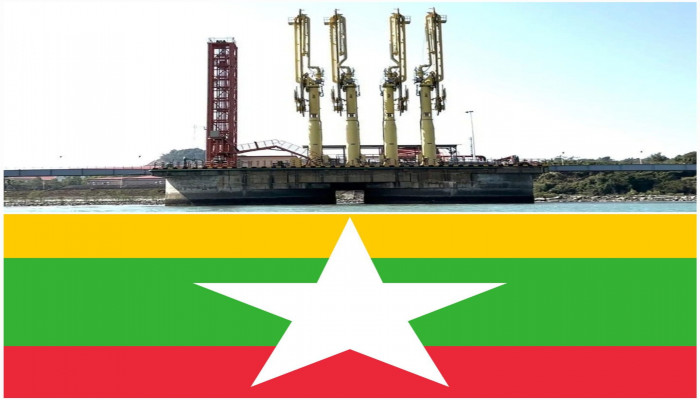Myanmar enacts law allowing foreign firms to provide armed security services
- In Reports
- 05:37 PM, Feb 20, 2025
- Myind Staff
Myanmar’s military government legislated a new law permitting foreign companies to provide armed security services. Analysts believe this could lead to former Chinese military personnel protecting China’s significant economic interests in Myanmar.
The law raises the possibility of Chinese private military firms safeguarding vital oil and gas pipelines that run from Myanmar’s Indian Ocean coast to China’s Yunnan province. This would help ensure uninterrupted supply routes, significantly if a conflict in the South China Sea disrupts regular shipping.
The Private Security Service Law, issued in state-run media on Tuesday, specifies that foreign companies must be registered under Myanmar’s Companies Law to obtain a security service license.
According to the newly enacted law, any company seeking to "hold arms and ammunition due to work demand in providing private security services" must first obtain approval from the National Defence and Security Council. The law was signed by Senior Gen. Min Aung Hlaing, the leader of Myanmar’s junta that took control in 2021.
The legislation mandates that security firms ensure their employees are "not a member of any armed forces of a foreign country," aligning with Myanmar’s military-drafted 2008 constitution, which prohibits foreign military forces from operating there.
Additionally, the law specifies that "at least 75% of the hired private security servants must be Myanmar citizens." Companies providing private security services must also comply with existing regulations on weapons.
Experts believe that the new law will enable China to deploy former People’s Liberation Army personnel to protect its extensive economic investments in Myanmar. Many of these projects are tied to the long-anticipated China-Myanmar Economic Corridor, which connects China’s Yunnan province to Myanmar’s coastline.
This corridor is a key component of China’s massive Belt and Road Initiative, aimed at developing infrastructure to support energy and trade.
The projects include a special economic zone and a planned deep-water port in Kyaukphyu, Rakhine state, along with oil and gas facilities. An 800-kilometre (500-mile) network of oil and gas pipelines also connects Myanmar to Kunming in southwest China. Other significant investments involve copper, jade, rare earth mines and hydroelectric plants.
Thein Htun Oo, executive director of the Thayninga Institute for Strategic Studies, a think tank led by former military officers, stated that the new law will enable China to provide security for all its infrastructure projects in Myanmar. He also noted that the junta will have the authority to decide who is granted security licenses.
“In the case of China, Chinese security firms will be given priority for services related to the oil and gas pipeline between Kyaukphyu and Kunming, as well as future road and railway projects under the Belt and Road Initiative,” stated he.
Although the military continues to control Kyaukphyu, many other projects are now in regions taken over by anti-junta forces fighting to overthrow military rule since the generals removed Aung San Suu Kyi’s government in February 2021.
While the ongoing civil war has caused delays in Chinese projects, insurgent groups, some of whom maintain ties with China, have not carried out large-scale attacks on pipelines or other infrastructure. In some cases, they have even pledged to safeguard these facilities.
Experts believe the new law establishes the legal foundation for a proposed China-Myanmar Joint Venture Security Company mentioned in the military’s Myanmar Gazette on November 8.
Lawyer Kyee Myint stated that the law demonstrates the junta’s commitment to advancing China’s economic projects by depending on Chinese security assistance.
“We have reached a situation where the military has allowed things that are not allowed internationally. This is not in line with the 2008 constitution,” Kyee Myint informed Radio Free Asia from an unknown place.
According to political analyst Than Soe Naing, Myanmar's new law will allow the presence of former Chinese military personnel in the country. This means China's People's Liberation Army can now operate freely and legally in Myanmar.
“The junta council is selling out to China for nothing, even though it is constantly talking about sovereignty,” he conveyed RFA.
RFA attempted to reach the junta council’s spokesman, Maj. Gen. Zaw Min Tun for a response to the criticism surrounding the law, but he did not answer the call.
The military council has not provided details on when the proposed China-Myanmar Joint Venture Security Company will be established.
According to the Burmese-language outlet Khit Thit Media, a deal to create a Chinese private military corporation in Kyaukphyu was signed in November. The agreement was made between a Special Economic Zone management sub-committee and Chinese CITIC Group Company representatives.







Comments